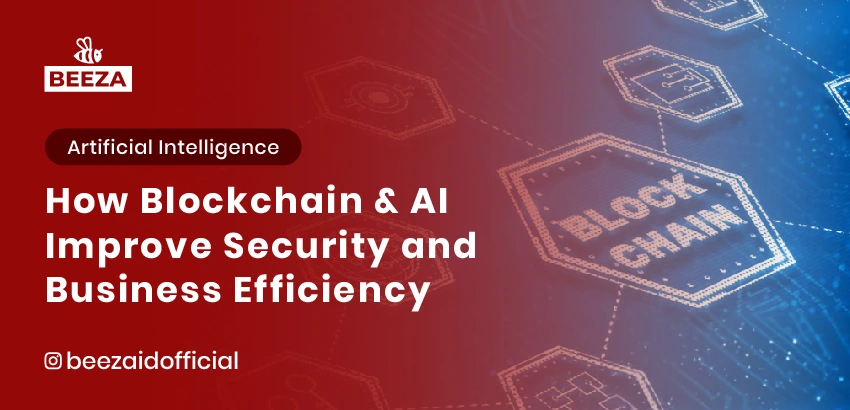
How can businesses ensure accurate and valid identities in today’s fast-paced digital world? Technologies like blockchain and artificial intelligence (AI) continue to evolve, unlocking significant potential in the field of identity verification. Reliable verification not only helps businesses secure data but also enables faster and more efficient processes. This article reviews some of the latest identity verification technologies that businesses are starting to adopt to enhance security and operational efficiency.
1. Blockchain: Secure Decentralized Verification
What Is Blockchain in Identity Verification?
Blockchain is a decentralized technology that stores data in cryptographically secured blocks, creating a transparent and hard-to-manipulate record. For identity verification, blockchain enables secure data recording without intermediaries.
Benefits of Blockchain for Business
- High Security: Data stored on a blockchain is difficult to alter or delete, providing added security for businesses.
- Transparency: Since all parties in the network can view transactions, identity verification becomes more transparent.
- Reduced Third-Party Dependency: Blockchain allows businesses to verify identities directly, saving costs and speeding up the process.
Examples of Blockchain Implementation in Verification
Some banks and financial institutions have started adopting blockchain for Know Your Customer (KYC) processes. Identity data stored on blockchain allows for quick access and verification, enabling clients to process transactions without repeated verification.
2. Artificial Intelligence (AI): Speeding Up and Enhancing Verification Accuracy
AI in Identity Verification: What You Need to Know
AI involves using algorithms and machine learning to process and analyze data quickly and accurately. In identity verification, AI can identify patterns in data and detect suspicious activity, increasing both speed and security in verification processes.
Benefits of AI for Identity Verification
- Speed and Efficiency: AI allows for verification in seconds, minimizing customer wait times and enhancing operational efficiency.
- Smart Fraud Detection: AI can analyze patterns in transactions or suspicious activities, providing early warnings to security teams.
- Improved Accuracy: AI systems learn from data inputs, becoming more accurate in identifying valid and fraudulent identities over time.
AI Implementation in Business
AI is used in facial recognition, where it matches users’ faces with biometric data to confirm identity. AI is also commonly applied in eKYC, processing documents and matching data with high accuracy.
3. Biometric Technology: Leveraging Unique User Features
Why Is Biometric Technology Important?
Biometric technology uses unique characteristics, such as fingerprints, retinal scans, or voice recognition, to verify identities. With features that are hard to replicate, biometrics provide a higher level of security compared to passwords or PINs.
Benefits of Biometrics for Business
- High Security: Biometrics rely on unique characteristics that are hard to fake, making it a reliable security measure.
- Enhanced User Experience: Users can access services faster using just their fingerprint or face.
- Efficient Verification Process: Reduces the need to enter passwords or other data that can be time-consuming.
4. Zero-Knowledge Proofs for Enhanced Privacy
What Are Zero-Knowledge Proofs?
Zero-Knowledge Proofs allow verification without sharing sensitive data. This method enables users to prove their identity or information without exposing detailed personal data.
Benefits of Zero-Knowledge Proofs for Business
- Higher Privacy: Sensitive data does not need to be shared, protecting user privacy.
- Increased Trust: Users feel safer during verification since their data is not widely shared.
- Reduced Data Leak Risks: Reduces the need to store sensitive data, lowering data breach risks.
Future Trends in Verification Technology
In the future, identity verification technologies will likely continue to evolve, combining blockchain, AI, and biometrics for a smoother, more secure, and faster verification experience. Some predicted trends include:
- Multi-Factor Biometric Integration: Combining several forms of biometrics for enhanced security.
- IoT-Based Verification: Using smart devices for automatic identity verification.
- Edge Data Processing for Better Security: Processing data directly on user devices, removing the need to upload data to central servers.
Key Points
- Blockchain and AI are becoming essential technologies in identity verification to enhance security and efficiency.
- Data Security: These technologies reduce data breach risks and increase transparency in verification processes.
- Operational Efficiency: Fast, accurate verification systems save time and improve user experience.
- User Privacy: Zero-Knowledge Proofs provide higher privacy, enabling verification without sharing personal data.
With advanced verification solutions, businesses can improve their security and operational efficiency. Contact us through our website to learn more about the right verification solution for your needs.